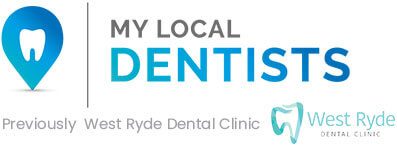Cracked Tooth Treatment — A Comprehensive Guide

Cracked teeth, whether caused by trauma or wear and tear over time, can cause severe discomfort and require immediate attention.
Fortunately, with advancements in dental technology, several treatments are available to repair cracked teeth and restore them to their normal function and appearance.
This article will briefly overview the available treatments and what to expect during the process.
Types of Cracked Teeth
There are several types of cracks that can occur in teeth, each with its own characteristics and causes.
 Vertical Root Fractures (VRFs)
Vertical Root Fractures (VRFs)
A vertical root fracture is a crack along the root of the tooth that extends vertically down from the crown to the root end.
This kind of fracture is typically caused by trauma or improper dental work, such as overfilling a cavity, and it can be difficult to diagnose due to its location.
If left untreated, a VRF can cause an abscess or infection in the gums, which may require extensive surgery to repair.
Craze Lines or Crazing
Crazing is a very small crack on the surface of a tooth, usually just below the enamel layer.
These tiny tooth cracks usually don’t cause any pain or discomfort unless they become infected, so they are often overlooked when diagnosing cracked teeth.
They are typically caused by wear and tear over time, but they can also be caused by trauma or grinding your teeth while sleeping.
Split Tooth
A split tooth occurs when a tooth breaks into two pieces due to trauma or decay that has weakened the structure of the tooth.
Depending on how deep the fracture is, it may require more than one procedure for repair, including crowns and root canal therapy.
In extreme cases where both halves cannot be saved, extraction may be necessary.
Fractured Cusp
A fractured cusp occurs when a large portion of the tooth breaks off due to trauma or decay.
This type of fracture is usually easy to identify because it is visible from the outside, but depending on its size and location, it may require more than one procedure for repair.
Causes of Cracked Tooth Syndrome
Ever wonder why teeth crack? Your teeth are strong, but they can still develop cracks and breaks.
In some cases, a cracked tooth is just a cosmetic issue. But in other cases, it can lead to serious pain or infection.
1. Trauma to the Face
One common cause of cracked teeth is trauma to the face, whether from a fall, a car accident, or even a punch to the mouth.
This type of trauma can cause your teeth to crack or break. If you have suffered trauma to your face, you need to see a dentist immediately so they can assess the damage and determine if any treatment is necessary.
2. Chewing on Hard Objects
Chewing on hard objects like ice cubes or candy can also crack your teeth.
While your teeth are designed to be strong enough to chew food, they’re not meant to chew on hard objects.
If you find yourself regularly chewing on hard objects, try to stop so you don’t damage your teeth.
3. Teeth Grinding
Teeth grinding (or bruxism) is another common cause of cracked teeth.
When you grind your teeth, you put a lot of pressure on them, which can eventually lead to cracks.
If you are unaware of your teeth grinding at night, it can cause significant damage to your teeth without you even realising it.
Don’t let this happen – speak with a dentist about getting a mouth guard for protection!
4. Eating acidic foods
Eating acidic foods and drinks can also contribute to tooth enamel erosion and cracking.
Acidic foods and drinks include things like citrus fruits, coffee, soda, and wine.
To help protect your teeth from acid erosion, try to limit how much acidic food and drink you consume and always brush your teeth after eating or drinking anything acidic.
 5. Poor dental hygiene
5. Poor dental hygiene
Poor dental hygiene habits can also lead to cracked teeth.
When you don’t brush or floss regularly, plaque and tartar build-up on your teeth, which weakens them and makes them more vulnerable to cracking.
Make sure you’re brushing twice a day for two minutes every time and flossing once every day so you can avoid this problem!
6. Cavities
Cavities are another common cause of cracked teeth because they weaken the structure of the tooth, which makes it more likely to break or crack under pressure.
Cavities happen when plaque and tartar build-up on your teeth and aren’t removed through brushing and flossing. This buildup leads to tooth decay which creates cavities.
To avoid cavities (and cracked teeth), make sure you’re brushing twice a day for two minutes each time and flossing once a day!
7. Age
Age is another factor that can contribute to cracked teeth because as we get older, our tooth enamel begins to wear down, which makes our teeth more susceptible to damage.
If you’re concerned about age-related tooth damage, make sure you’re seeing your dentist regularly for check-ups so they can catch any problems early on.
Cracked Tooth Symptoms
Pain When Biting Down
One of the signs that you may have a cracked tooth is feeling pain when chewing or biting down on something.
This type of pain usually comes on suddenly and lasts for a short period, then subsides until it happens again.
If you experience this type of pain, you have to see your dentist as soon as possible so they can diagnose what is causing the problem.
Sharp Pain Sensitivity
Another symptom that could indicate a cracked tooth is a sharp sensitivity to hot or cold temperatures in food or beverages.
You may find that drinking hot water or eating an ice cream cone causes an unexpected burst of pain in one specific area.
This sensitivity could mean that there is a crack in the tooth enamel, allowing heat and cold to reach the inner nerves directly and causing discomfort.
Visible Chips or Fractures
If you look closely at your teeth, do you notice any chips, fractures, or cracks? A chip may be small but still visible enough to cause concern if found near the gum line.
A fracture may appear as a spiderweb-like crack running through the centre of your tooth.
In both cases, it is best to visit your dentist immediately for proper assessment and treatment options before further damage occurs.
Painful Sensitivity When Touching Teeth
Sometimes cracking teeth aren’t visible, but they will still cause painful sensitivity when touched with your tongue or finger.
If this is happening to you, it could mean that there are microscopic cracks occurring in the enamel and dentin layers of your teeth which are causing nerve irritation and sensitivity.
It’s best to go to your dentist as soon as possible for diagnosis so they can determine how best to address this issue before further damage occurs.
Tenderness Around Mouth Area
Finally, tenderness around the mouth area can also be indicative of cracked teeth – specifically around the gum line, where cracks may occur more easily due to weakened enamel caused by plaque build-up over time.
If you feel persistent tenderness around any part of your mouth area, especially near the gum line, make sure you schedule an appointment with your dentist right away so they can evaluate what’s going on inside your mouth and provide treatment options accordingly.
 Cracked Tooth Diagnosis
Cracked Tooth Diagnosis
Diagnosing a cracked tooth can be tricky, but with the right dental history and examination of the patient’s mouth, it doesn’t have to be.
A dental practitioner will first take into account any dental history a patient has before doing an examination of all the soft tissues for potentially damaged areas.
They may also ask questions regarding any natural tooth loss in order to conclude if the affected tooth is already weakened from causes other than cracking.
After this dental practitioner will search for signs of chipping or fractures in both hard and soft tissues, carefully inspecting the entire area with a dental pick or dental mirror.
All observations aid in determining whether there is indeed a crack present or not.
Treatments for Cracked Teeth
Luckily, there are treatments available that can help alleviate your symptoms and restore the health of your teeth.
1. Bonding
Bonding is a technique in which a dentist applies resin to the tooth surface to cover up any cracks or chips.
The resin is hardened with ultraviolet light and then polished to match the colour of the surrounding tooth enamel.
This treatment is typically used for small cracks that do not cause any major problems with the tooth structure.
2. Dental Filling
A dental filling is another option if the crack is small enough and does not affect the underlying tooth structure.
A filling will protect the area from further damage and also restore its appearance.
3. Crowns
If a crack affects more than 50 per cent of the tooth, a crown may be recommended to protect it from further damage and improve its appearance.
A crown covers the entire visible part of the tooth above the gum line and prevents it from breaking apart any further.
4. Veneers
Dental veneers are thin shells made out of porcelain or composite material that is bonded to the front surface of a cracked tooth to improve its appearance.
They can also provide additional protection against further damage caused by wear or decay over time.
 5. Root Canal Treatment
5. Root Canal Treatment
Root canal therapy may be necessary if a crack extends into or beyond the root of a tooth, causing infection or inflammation in the pulp (soft tissue) of the tooth that cannot be treated with other methods, such as bonding or filling alone.
During this procedure, your dentist will remove any infected tissue, clean out any debris, fill in any gaps with filler material, and replace missing parts with artificial materials, such as porcelain crowns or bridges, if necessary.
6. Tooth Extraction
In some cases, it may be essential to extract (remove) a severely cracked or broken tooth due to structural damage or infection that cannot be treated with other methods mentioned above.
7. Oral Surgery
Oral surgery may be required if there are multiple fractures in one area that need to be repaired at once or if there are fractures in multiple areas throughout your mouth that need to be addressed simultaneously through reconstructive surgery procedures, such as bone grafting or implant placement.
Don’t Let a Damaged Tooth Ruin Your Day – Get it Treated By the Experienced Professionals at My Local Dentists West Ryde!
If you have a cracked tooth, My Local Dentists West Ryde can help. We offer a variety of treatments to restore your teeth and alleviate any discomfort caused by the crack.
Our knowledgeable and skilled dentists are committed to providing superior services that meet your individual needs.
Through our collaboration, we will create an actionable treatment plan that best suits your circumstances.
Contact us today at (02) 9809 7000 to get started!
Note: Any surgical or invasive procedure carries risks. Before proceeding, you should seek a second opinion from an appropriately qualified health practitioner.
References
Cracked Tooth
https://www.healthline.com/health/cracked-tooth
Fractured Tooth (Cracked Tooth)
https://my.clevelandclinic.org/health/diseases/21628-fractured-tooth-cracked-tooth
